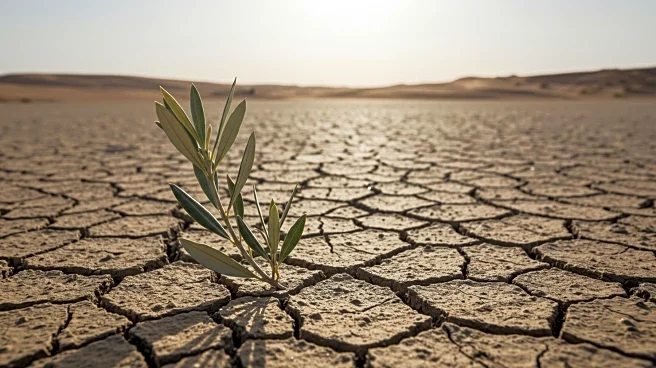What's Happening?
A 20-year-old Palestinian woman, Marah Abu Zuhri, evacuated from Gaza to Italy for medical treatment, has died in Pisa University Hospital. She was described as being in a 'state of severe physical deterioration' upon arrival. The evacuation was part of a humanitarian mission, with nearly 120 Gazans, including 31 patients and their families, flown to Italy. The United Nations has reported that malnutrition levels in Gaza are at their highest since the Israel-Hamas conflict began, with nearly 12,000 children under five suffering from acute malnutrition. Despite these reports, Israeli Prime Minister Benjamin Netanyahu has denied the existence of a hunger crisis in Gaza, labeling it a 'global campaign of lies.' Recently, Israel has increased the amount of food allowed into Gaza after a period of restrictions aimed at pressuring Hamas to release hostages.
Why It's Important?
The humanitarian crisis in Gaza has significant implications for international relations and human rights advocacy. The severe malnutrition reported by the UN highlights the dire conditions faced by civilians in the region, potentially influencing global perceptions and diplomatic efforts. The denial by Israeli leadership of a hunger crisis contrasts with UN findings, which may affect Israel's international standing and its relations with humanitarian organizations. The situation underscores the challenges in addressing humanitarian needs amidst ongoing conflict, impacting policy decisions and aid distribution strategies.
What's Next?
Continued international scrutiny and pressure may lead to increased humanitarian aid and diplomatic interventions. The UN and other humanitarian organizations are likely to intensify efforts to address the crisis, potentially leading to negotiations for more consistent access to food and medical supplies in Gaza. Political leaders and civil society groups may advocate for policy changes to ensure the protection of civilians and the provision of essential resources. The evolving situation could influence future peace talks and conflict resolution strategies in the region.
Beyond the Headlines
The crisis in Gaza raises ethical questions about the responsibilities of nations and international bodies in conflict zones. The disparity between reported conditions and official statements from Israeli leadership highlights the complexities of information dissemination and media influence in conflict narratives. Long-term implications may include shifts in international humanitarian law and the role of global governance in crisis management.











